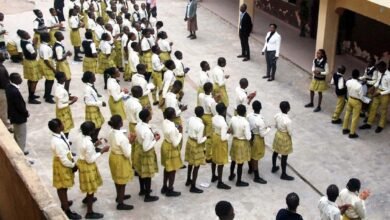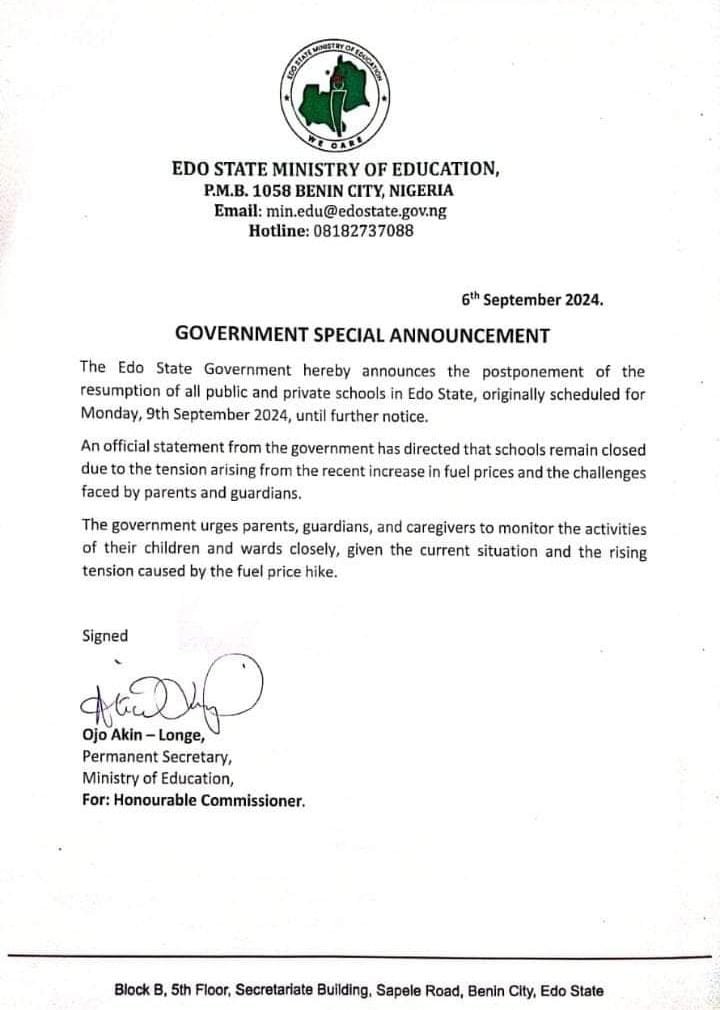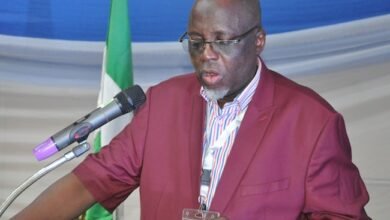FG Announces 12 as Minimum Age for JSS1 Admission

The Federal Ministry of Education has introduced a new policy document on Non-State Schools, setting the official age for entry into Junior Secondary School (JSS1) at 12 years. This policy, launched last week, redefines the timeline for a child’s educational journey, beginning from nursery and culminating in higher education.
It aims to standardize age-appropriate transitions through Nigeria’s basic education system, reinforcing the child’s right to structured and inclusive learning.
Under the new guidelines, nursery education is to last three years. Children are expected to start Nursery One at age three, move to Nursery Two at age four, and complete one year of compulsory pre-primary education (Kindergarten) at age five.
Primary education begins at age six and lasts for six years. Only after completing these foundational stages should a child proceed to Junior Secondary School, ideally at the age of 12. If this pathway is followed strictly, most learners will be on track to complete secondary education and qualify for higher education around the age of 18.
This reform supports the right of every Nigerian child to quality and developmentally appropriate education. It aligns with Section 2(17) of the 2013 edition of the National Policy on Education and echoes the principles of the Child Rights Act, which guarantees access to basic education as a fundamental right.
The policy is particularly relevant to Non-State Schools, also known as independent, private, or non-government schools, which are not administered by the government but contribute significantly to Nigeria’s education system. These institutions are typically funded through tuition, community support, and contributions from faith-based or philanthropic organizations.
Recent statistics from the Nigeria Education Digest 2022 highlight the growing role of these schools. Non-state schools now outnumber public schools at the Junior Secondary level in at least 26 states.
Between 2017 and 2022, the number of non-state primary schools grew by 31.56 percent, compared to just 3.3 percent growth in state schools. At the Junior Secondary level, the growth rate of non-state schools was even more striking, 35.06 percent, while state schools grew by only 6.8 percent during the same period.
The structured age progression outlined in the policy also offers a timely response to the ongoing debate over the appropriate age for university admission.
The former Minister of Education, Professor Tahir Mamman, had announced 18 as the minimum entry age into tertiary institutions, a position later revised to 16 years by the current Minister, Dr. Tunji Alausa.
By clearly defining the educational timeline from early childhood through junior secondary, the new policy lends support to the 18-year benchmark, promoting both academic readiness and emotional maturity.
This policy affirms the government’s commitment to the right of every child to education that is age-appropriate, inclusive, and rooted in a structured framework.





